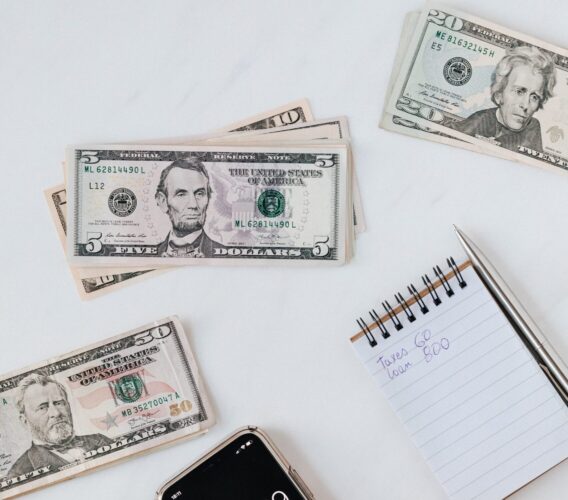Paying Yourself First is not a new idea, but its significance cannot be overstated. It’s a financial strategy that flips conventional wisdom on its head. Rather than allocating money to bills and expenses first, this concept prompts you to set aside a portion of your income for your own future financial goals right at the outset. It means before your rent or mortgage, before your grocery bills, and even before that tempting shopping spree – you pay yourself first.
To understand the true power of Paying Yourself First, it’s essential to consider the flaws in the traditional budgeting approach. The conventional method involves allocating income to expenses and savings after the fact. The problem with this approach is that it often leaves very little, if anything, for savings. It’s a method that prioritizes bills and immediate spending, leaving your financial future uncertain.
So, what’s the end goal here? Financial freedom. It’s a phrase that holds different meanings for different people, but at its core, it’s about having the financial flexibility to live life on your terms, without being chained to a paycheck or constant financial worry. Financial freedom means having the resources to pursue your dreams, withstand unexpected financial blows, and to enjoy a comfortable retirement.
Now, let’s delve into the mechanics of Paying Yourself First. The moment your paycheck lands in your account, a predetermined portion is siphoned off for savings or investments. It’s a deliberate act that aligns with your financial goals, whether it’s building an emergency fund, purchasing a home, or securing your retirement. This amount is non-negotiable; it’s your future security.
The key to this approach is prioritization. By putting your savings or investments first, you ensure that you are building your financial future before anything else. It sets the stage for disciplined financial management.
One of the immediate benefits of Paying Yourself First is the creation of a financial safety net. You build an emergency fund, a financial cushion that offers security in times of unexpected events like medical bills or car repairs. This fund ensures you don’t need to rely on credit cards or loans, saving you from falling into the debt trap.
Now, let’s talk about the magic ingredient that comes with paying yourself first: Time. Consistently saving or investing even a small portion of your income over time can lead to significant wealth accumulation. It’s not just about saving; it’s about making your money work for you.
And here’s where the secret sauce of Paying Yourself First comes into play: compound interest. It’s like a turbocharger for your savings or investments. Your money earns interest, and that interest earns more interest. This exponential growth is what can propel you toward financial freedom faster than you might think.
However, Paying Yourself First doesn’t work in isolation. It’s closely tied to setting clear financial goals. By having defined objectives – whether it’s buying a house, traveling the world, or retiring early – you ensure your savings have a purpose, and that purpose becomes your financial motivation.
The interesting thing about Paying Yourself First is that it doesn’t negate budgeting. Instead, it enhances it. With your savings as the first priority, you then allocate the remainder of your income to cover your expenses. This approach encourages frugality and more mindful spending since you’re working within the boundaries set by your income, after savings.
Of course, transitioning to this mindset can be challenging, especially if you’re accustomed to impulsive spending habits. The pull of instant gratification can be strong. However, adopting the Paying Yourself First mindset means learning to say ‘no’ to unnecessary expenditures and ‘yes’ to your long-term financial security.
To make this approach even more effective, consider automating your savings or investments. Automation ensures you consistently pay yourself first without having to consciously make that decision each time you receive income.
But Paying Yourself First isn’t just about the numbers. It has a powerful emotional aspect. Knowing that you are securing your future, that you are taking control of your financial destiny, brings immense satisfaction and peace of mind.
The most significant benefit is the empowerment that comes with Paying Yourself First. You gain independence from the constant worry about money, and this independence is liberating.
Now, how do you put all of this into action? Start by assessing your current financial situation and determining how much you can comfortably allocate to Paying Yourself First. Even if it’s a small amount initially, it’s a step in the right direction.
As your circumstances change, remember to adjust your financial plan accordingly. Life isn’t static, and your financial plan should evolve with it.
And while Paying Yourself First is a powerful strategy, there are common pitfalls to avoid. These include failing to prioritize savings, dipping into your savings for non-essentials, or not staying committed to your financial goals.
In conclusion, Paying Yourself First isn’t just a financial strategy; it’s a philosophy that can reshape your relationship with money. Remember, it’s not about how much you earn but what you do with what you earn that counts. So, start today, and pay yourself first. Your future self will thank you for it!
Before you go, I want to invite you to join my FREE email list community. By signing up today, you’ll get notifications of my latest posts. Plus, access to my FREE Resources Library. Click Here to sign up!
Recommended Reading:

